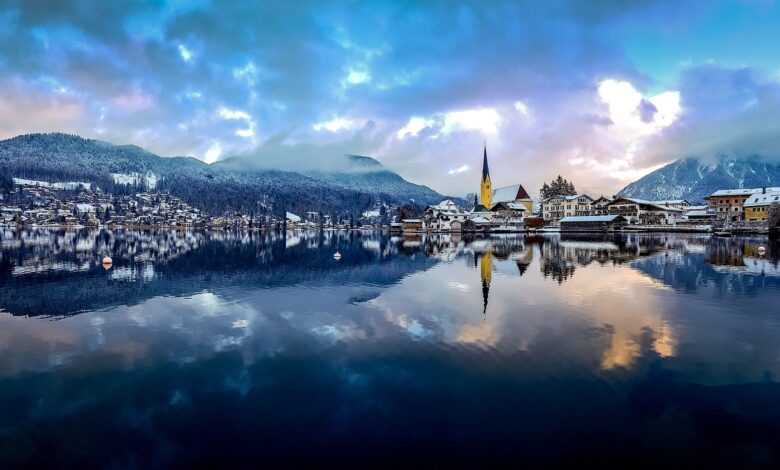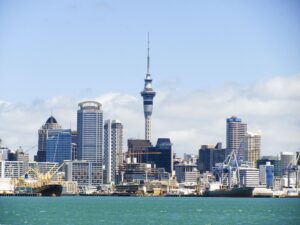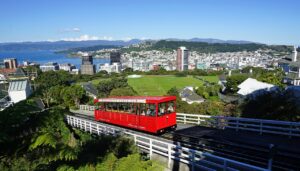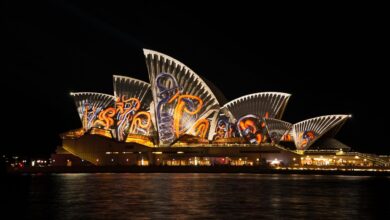
New Zealand, an island nation in the southwestern Pacific Ocean, is renowned for its stunning landscapes, vibrant culture, and high quality of life. Comprising two main islands, the North Island and the South Island, as well as numerous smaller islands, New Zealand spans approximately 268,000 square kilometers and has a population of about 5 million people. This article delves into various aspects of life in New Zealand, including its history, culture, economy, urban and rural dynamics, and contemporary challenges.
Historical and Cultural Context in New Zealand
New Zealand’s history is a tapestry woven from both Maori and European threads. The Maori, the indigenous Polynesian people, arrived in New Zealand over 1,000 years ago. European exploration began in the 17th century, and the country became a British colony in the 19th century. The Treaty of Waitangi, signed in 1840 between the British Crown and various Maori chiefs, remains a foundational document, influencing New Zealand’s legal and cultural landscape.
The cultural fabric of New Zealand is rich and diverse. Maori culture is a cornerstone of the nation’s identity, with traditions, language (Te Reo Maori), and arts playing a crucial role. The Maori concept of “Manaakitanga,” meaning hospitality and kindness, is a guiding principle in social interactions. European influences, particularly from the United Kingdom, are also prominent, seen in language, governance, and societal structures.
Urban vs. Rural Life in New Zealand
Urban Life
Urban life in New Zealand is characterized by modern amenities, cultural diversity, and a vibrant lifestyle. Auckland, Wellington, and Christchurch are the largest cities, each with its unique charm and opportunities.
Auckland, the largest city, is a bustling metropolis known for its harbors, multicultural population, and economic activity. It offers a range of services, including top-tier educational institutions, healthcare facilities, shopping centers, and a dynamic arts scene. Auckland’s skyline, featuring the iconic Sky Tower, is a testament to its growth and development.
Wellington, the capital city, is renowned for its political significance, cultural institutions, and stunning harbor. It is home to the New Zealand Parliament, national museums, and numerous theaters. Wellington’s compact city center is known for its vibrant café culture, artistic community, and scenic waterfront.
Christchurch, known as the “Garden City,” is famous for its green spaces and English heritage. Despite being affected by significant earthquakes in 2010 and 2011, the city has undergone extensive rebuilding and revitalization. Christchurch offers a blend of historic charm and modern innovation, with a focus on sustainability and resilience.

Rural Life
Rural life in New Zealand offers a stark contrast to urban living, characterized by tranquility, close-knit communities, and a deep connection to nature. Agriculture plays a central role in rural areas, with dairy farming, sheep farming, and horticulture being major economic activities.
The rural landscape is dotted with small towns and farms, where residents enjoy a slower pace of life. Community events, local markets, and traditional practices are integral to rural living. The natural beauty of the countryside, with its rolling hills, pristine lakes, and rugged coastlines, offers ample opportunities for outdoor activities such as hiking, fishing, and bird-watching.
Economic Landscape in New Zealand
New Zealand has a mixed economy with a high standard of living. It is heavily reliant on international trade, particularly in agricultural products. The country is one of the world’s largest exporters of dairy products, meat, and wool. The agricultural sector is highly efficient and innovative, contributing significantly to the national economy.
Tourism is another vital industry, attracting millions of visitors annually to explore New Zealand’s natural beauty, adventure sports, and Maori culture. Popular tourist destinations include Queenstown, known for its adventure tourism, Rotorua, famous for geothermal activity and Maori cultural experiences, and Fiordland National Park, home to the stunning Milford Sound.
The technology sector is growing rapidly, with New Zealand becoming a hub for tech startups and innovation. The country’s favorable business environment, skilled workforce, and quality of life make it an attractive destination for tech entrepreneurs and investors.
Social Dynamics in New Zealand
Family and Society
Family is a central aspect of life in New Zealand, with a strong emphasis on work-life balance and outdoor activities. New Zealanders, often referred to as Kiwis, value their time with family and friends, and social gatherings are common.
The society is characterized by its egalitarian nature, with a focus on equality and social justice. The government provides various social services, including healthcare, education, and welfare support, ensuring a high quality of life for its residents.
Education in New Zealand
Education is highly valued in New Zealand, with a robust public education system. Schooling is compulsory for children aged 6 to 16, though most children start at age 5. The country’s education system is well-regarded globally, emphasizing both academic achievement and personal development.
New Zealand’s universities, such as the University of Auckland, Victoria University of Wellington, and the University of Otago, are renowned for their research and academic excellence. The country also attracts a significant number of international students due to its high-quality education and multicultural environment.
Modern Challenges in New Zealand
New Zealand faces several modern challenges, including housing affordability, environmental sustainability, and social inequality. Housing prices, particularly in major cities like Auckland, have risen sharply, making affordability a critical issue for many residents.
Environmental sustainability is a key focus, as New Zealand strives to balance economic growth with the preservation of its natural environment. Initiatives to promote renewable energy, conservation, and sustainable agriculture are underway to address these concerns.
Social inequality, particularly affecting Maori and Pacific Islander communities, is another significant challenge. Efforts to improve education, healthcare, and employment opportunities for these communities are essential to achieving greater social equity.

Daily Life and Leisure in New Zealand
Cuisine
New Zealand’s cuisine reflects its multicultural population and abundant natural resources. Traditional Maori foods, known as “kai,” include dishes like “hangi” (food cooked in an earth oven) and “kumara” (sweet potato). European influences are evident in popular dishes such as roast lamb and meat pies.
Seafood is a staple, with fresh fish, mussels, and crayfish being widely enjoyed. The country’s vibrant wine industry, particularly in regions like Marlborough and Hawke’s Bay, produces world-class wines that are an integral part of the dining experience.
Entertainment and Technology in New Zealand
New Zealanders enjoy a wide range of recreational activities, both indoor and outdoor. The country’s stunning landscapes provide a perfect backdrop for outdoor sports such as hiking, skiing, surfing, and bungee jumping. Rugby is the national sport, and the All Blacks, New Zealand’s national rugby team, are celebrated worldwide.
Technology and digital connectivity are integral to daily life. The country has high internet penetration, and digital services are widely used for communication, entertainment, and commerce. Streaming services, online gaming, and social media platforms are popular among all age groups.
Life in New Zealand is a harmonious blend of tradition and modernity, urban sophistication and rural tranquility. The country’s rich cultural heritage, commitment to social equality, and breathtaking natural beauty create a unique and fulfilling lifestyle. While New Zealand faces contemporary challenges, its resilient and innovative spirit continues to drive progress and ensure a high quality of life for its residents. Understanding New Zealand means appreciating its diverse cultural landscape, dynamic economy, and the everyday experiences that make it a special place to live.
